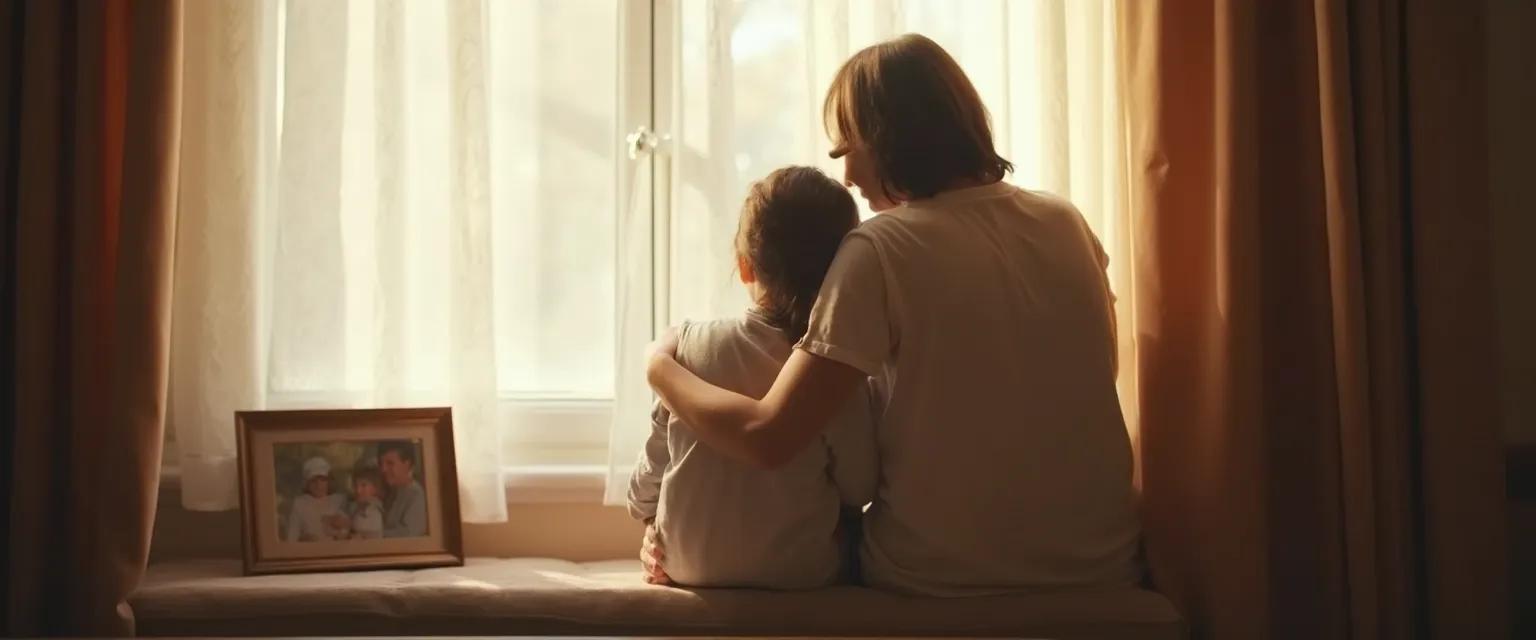Supporting Children After Losing a Sibling: A Parent's Compassionate Guide
When your family experiences the devastating loss of a child, you face the overwhelming challenge of managing your own grief while supporting your surviving children through losing a sibling. This dual burden feels impossibly heavy—you're navigating your own heartbreak while trying to be the anchor your child desperately needs. The reality is that children process losing a sibling differently than adults, requiring support tailored to their developmental stage and unique relationship with their brother or sister.
Children's grief after losing a sibling often manifests in ways that might surprise you—from regression in behaviors to seemingly indifferent responses that mask deeper emotions. While you're both grieving the same person, your child's experience of building emotional resilience through this loss follows a different path than yours, shaped by their age, understanding of death, and the special bond they shared with their sibling.
Remember that there's no perfect roadmap for supporting a child after sibling loss—but with compassion, consistency, and open communication, you can help your child navigate this difficult journey while honoring both their grief and your own.
Understanding Your Child's Grief After Losing a Sibling
Children at different developmental stages comprehend and express grief uniquely when losing a sibling. Preschoolers might struggle to understand the permanence of death, asking repeatedly when their sibling will return. School-aged children often experience intense emotions alongside magical thinking about death, while teenagers might withdraw or act out as they process their grief.
After losing a sibling, common reactions include sleep disturbances, separation anxiety, difficulty concentrating, and behavioral changes that might seem unrelated to grief. Young children frequently regress developmentally, while older children might take on caretaking roles or suppress their feelings to protect grieving parents.
Creating emotional safety becomes essential for children processing sibling loss. This means acknowledging their feelings without judgment and reassuring them that all emotions—anger, guilt, relief, or confusion—are normal responses to losing a sibling. Children need to know their grief matters, even when it looks different from adult grief.
Watch for signs that your child is struggling beyond typical grief responses, such as prolonged withdrawal, destructive behaviors, or expressions of wanting to join their deceased sibling. These may indicate they need additional emotional support techniques beyond what you can provide at home.
Practical Ways to Support Children After Losing a Sibling
When discussing death with children after losing a sibling, use clear, age-appropriate language. For younger children, concrete explanations work best: "Your brother's body stopped working, and doctors couldn't fix it." Avoid euphemisms like "gone to sleep" or "passed away," which can create confusion and fear.
Creating meaningful remembrance rituals helps children process sibling loss in tangible ways. Consider making memory boxes, planting a tree, celebrating special dates, or finding simple ways to keep their sibling's memory present in daily life. These activities acknowledge the continuing bond while providing opportunities to express feelings.
Finding balance between honoring the deceased sibling and meeting the living child's needs is crucial. While remembrance matters, your surviving child also needs permission to experience joy, continue normal activities, and develop their own identity separate from being "the sibling who remains."
Simple daily practices provide stability during the chaos of grief. Maintaining routines, offering physical comfort, and creating predictable check-in times shows children they can count on structure even when emotions feel overwhelming. These small consistencies become powerful anchors after losing a sibling.
Moving Forward Together After Losing a Sibling
Help your child maintain a healthy connection to their sibling while continuing to grow by integrating memories naturally into everyday life. Mention their sibling in conversation, share stories, and acknowledge how their relationship continues to shape your child's life—even after death. This approach honors the sibling bond while allowing your child to evolve their own identity.
Building resilience after sibling loss involves helping children identify their strengths and coping skills. When they navigate difficult emotions successfully, point out their resilience: "I noticed how you talked about missing your sister today—that took courage." These acknowledgments reinforce their confidence in handling difficult emotions.
Finding balance between grief and joy presents one of parenting's greatest challenges after losing a sibling. Help your child understand that experiencing happiness doesn't dishonor their brother or sister—in fact, living fully honors their memory. Create space for both remembrance and new experiences that bring light back into your family's life.
As your family continues healing from losing a sibling, remember that grief doesn't follow a timeline. Some days will feel impossibly hard, while others bring unexpected moments of peace. By navigating this journey together—honoring both your child's unique grief process and your own—you create a foundation for healing that acknowledges the profound loss while building resilience for the future.




